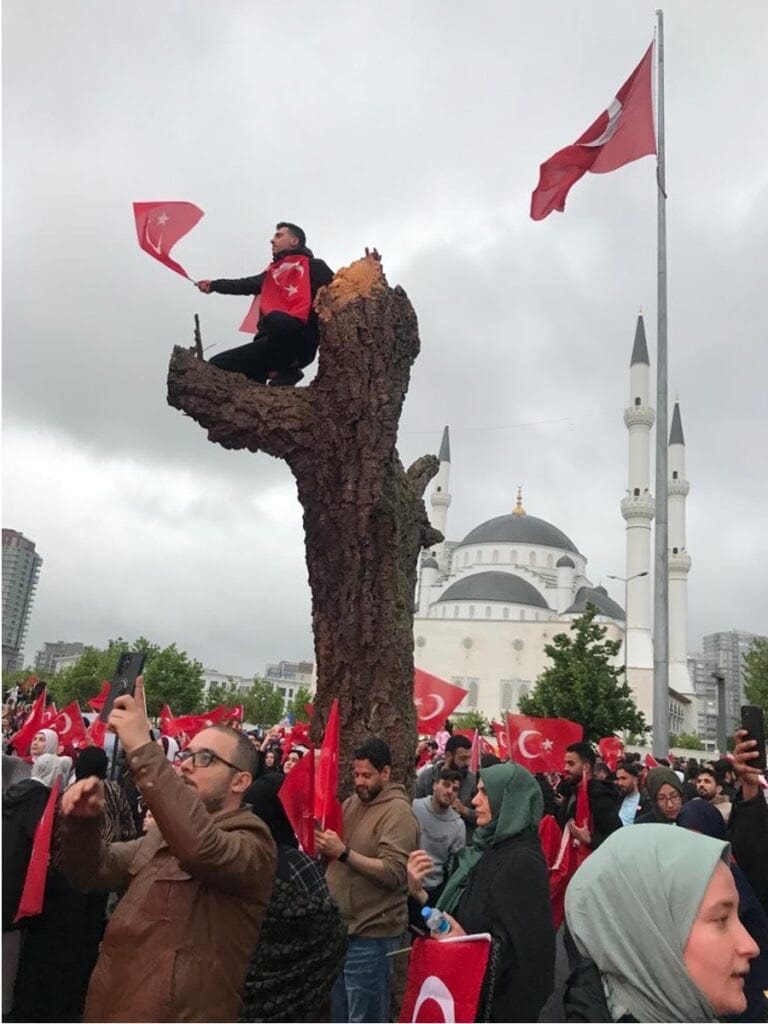
As a political anthropologist, I have observed and written about theories and practices of democracy across the continents – Australia, Europe, India, the USA and beyond. It is this very interest, which took me to a polling booth during the second round of the 2023 Turkish Presidential elections for which the voting took place on Sunday, 29 May. The aim of this visual essay is to document the process of actual voting and citizens’ participation therein, including their celebration of the outcome.
The result was announced within hours after the polling closed: Recep Tayyip Erdoğan of the ruling Justice and Development Party’s (Adalet ve Kalkınma Partisi, AK Party) defeated his rival Kemal Kılıçdaroğlu of the Republican People’s Party (Cumhuriyet Halk Partisi, CHP). While Erdoğan received 52.18% of the total votes cast; Kılıçdaroğlu did 47.82%. Many analysts believe that with Erdoğan’s victory, Kılıçdaroğlu’s political career is almost over. It is important to note that Turkish citizens living abroad – a significant number of whom are based in Europe, especially in Germany – also cast their votes. While Western media like Germany’s Deutsche Welle (DW) seem unhappy with the result and are busy in promoting crass views that people chose a “monarchy” and that elections have been “definitely unfair and unfree,” people in Turkey celebrated Erdoğan’s victory with much enthusiasm, in some cases a bit awkwardly (see photo on the top).
For those familiar only with the British form of election, a key fact about Turkish election system is in order. Unlike the First Past The Post system in which a candidate with the largest number of votes (rather than an absolute majority) is declared a winner, in Turkey for her to be a winner a candidate must get more than half of the total votes cast. If no candidate wins an absolute majority, the top two candidates face each other again in a run-off election. This was the case this year, the first in Erdoğan’s long career.


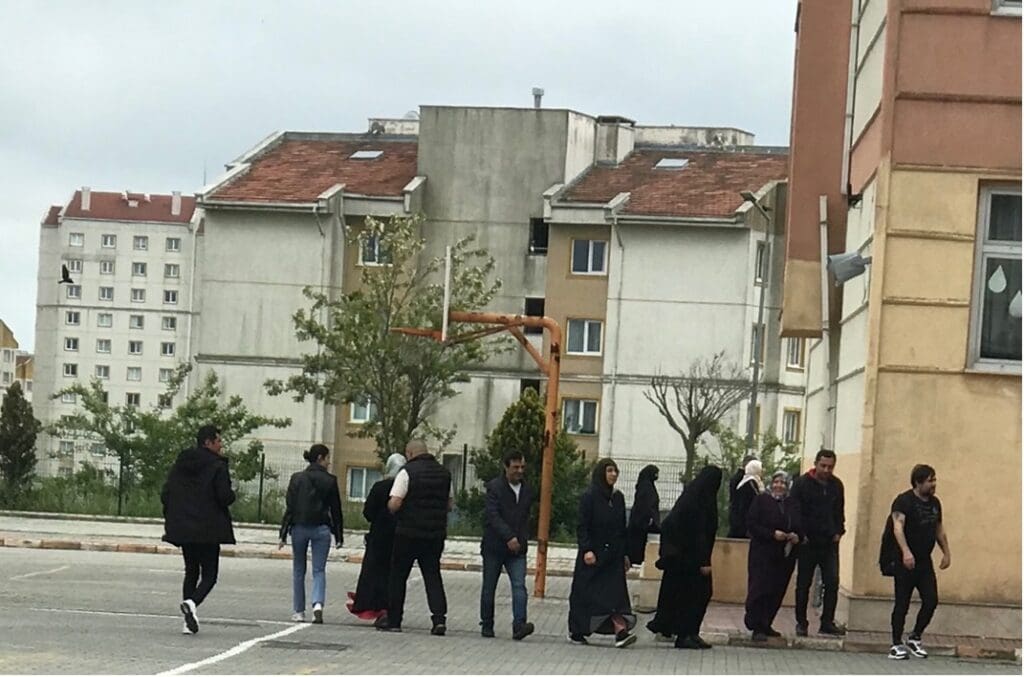



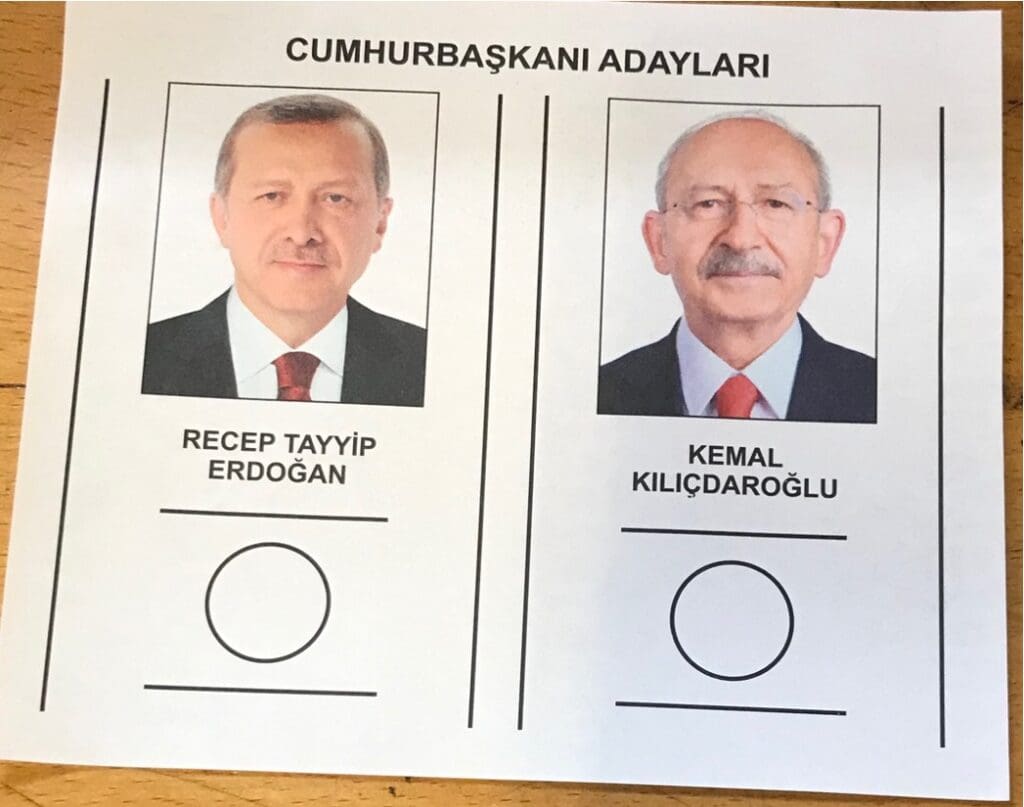



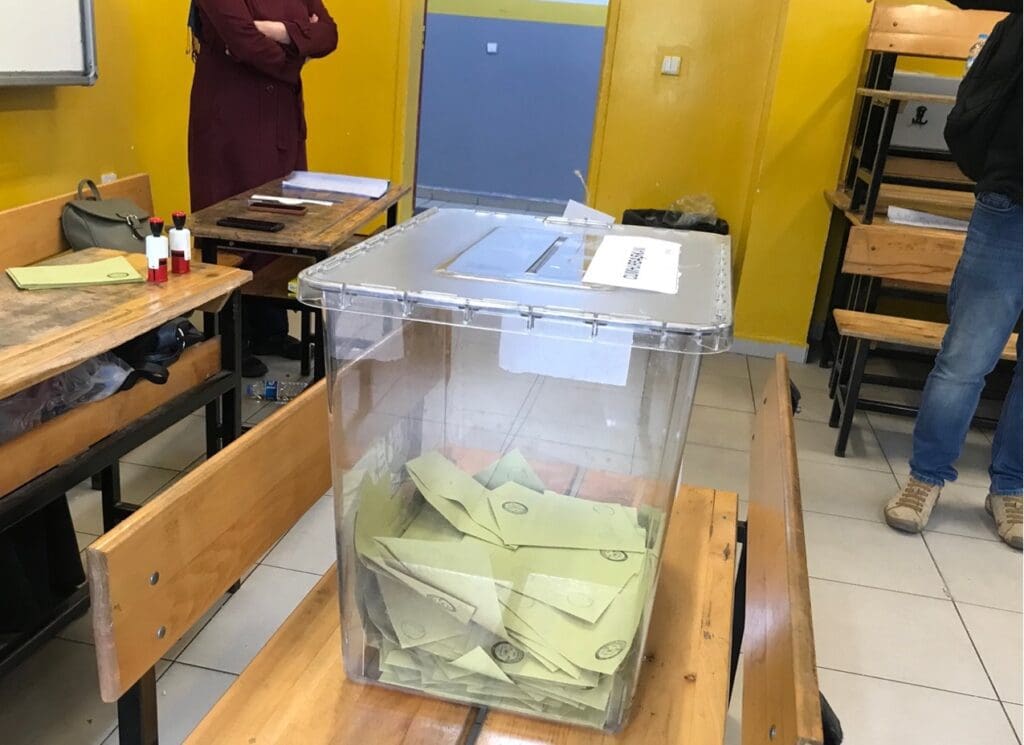



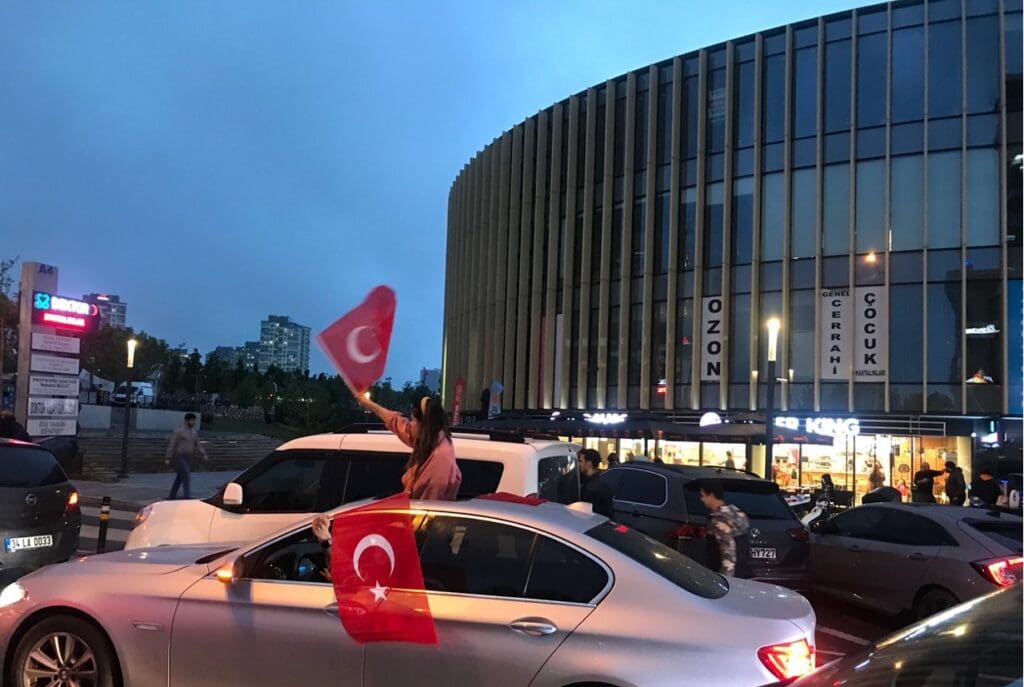

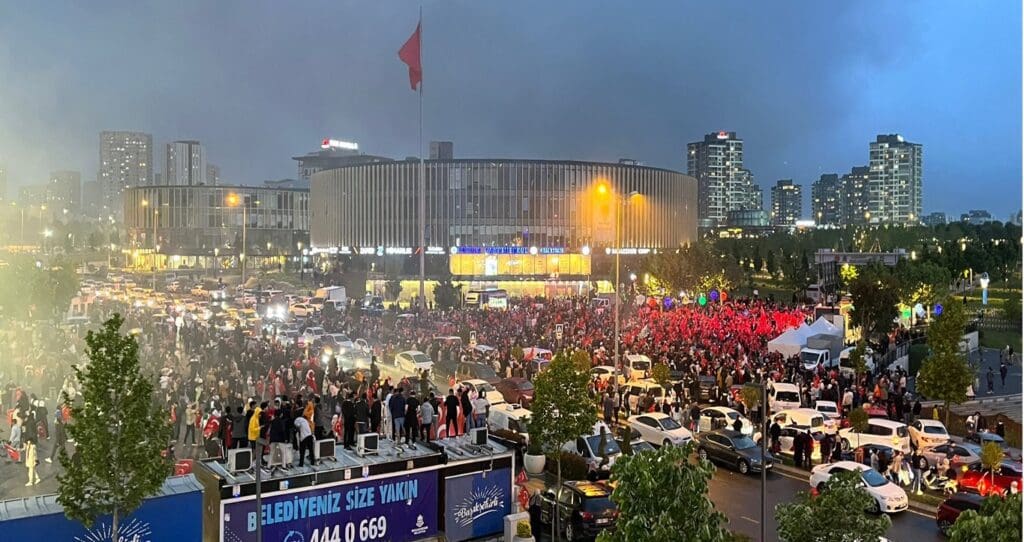

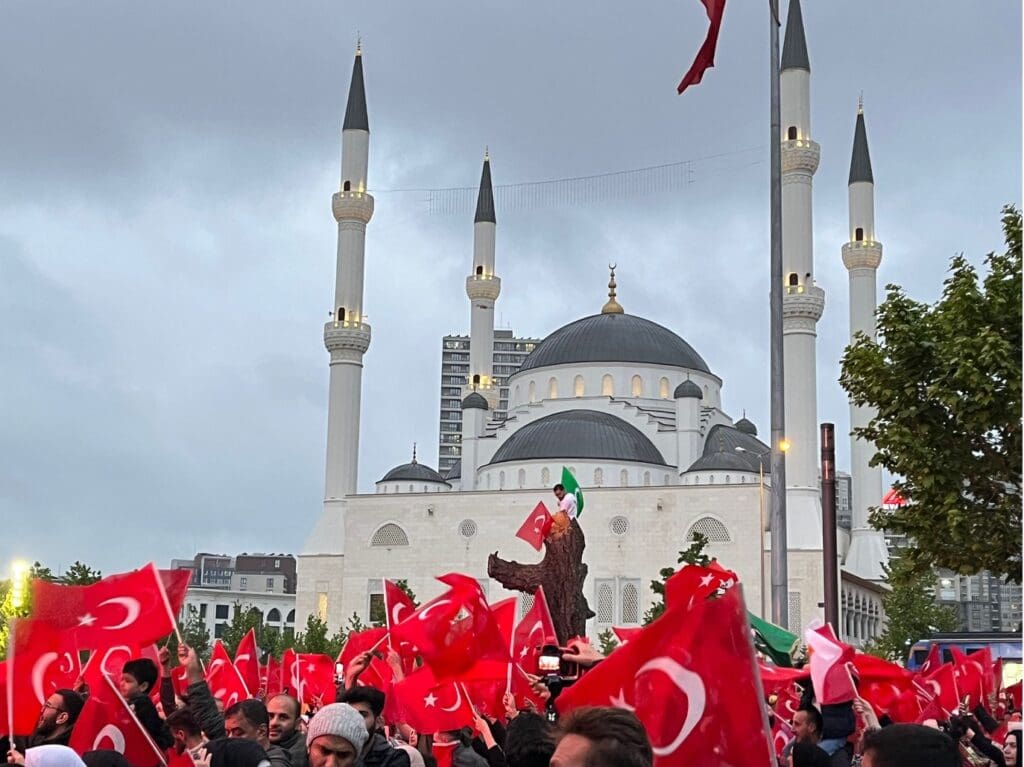

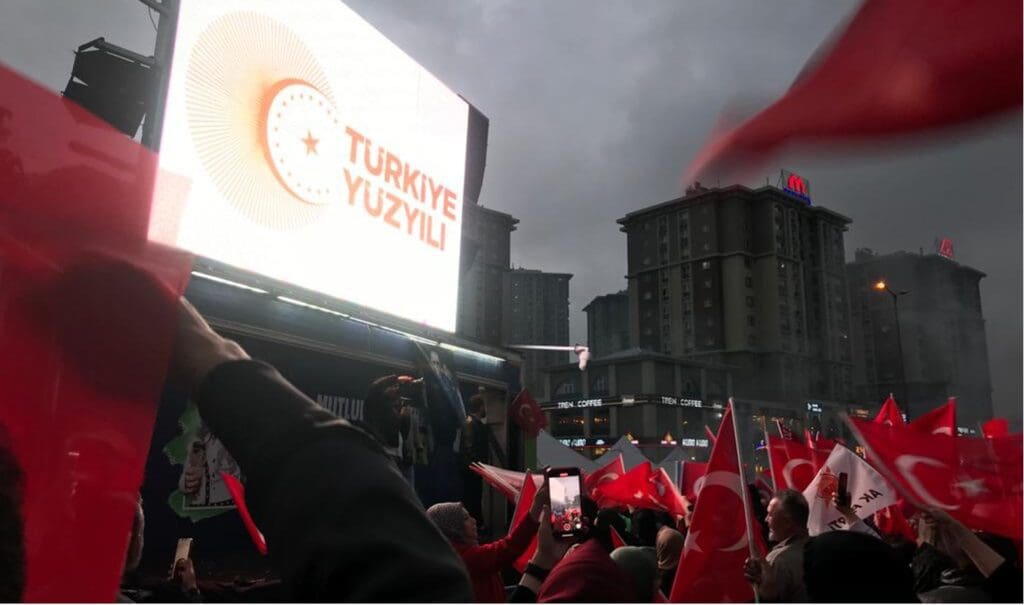

A political anthropologist, Irfan Ahmad is professor of Sociology at Ibn Haldun University, Turkey. Until early 2022, he was a senior research fellow at Max Planck Institute, Gottingen, Germany. Most recently, he is the author of Religion as Critique, editor of The Nation Form in the Global Age: Ethnographic Perspectives, and co-editor of The Algebra of Warfare-Welfare: A Long View of India’s 2014 Election. He has been interviewed, inter alia, by Al-Jazeera, Deutsche Welle, Frontline, The Hindu, New York Times, NRC Handelsblad (The Netherlands), Sky News (Australia), and TRT World. Titled, “Drinking Secularism,” at the invitation of The Society for the Anthropology of Religion, American Anthropology Association, he delivered the 2023 distinguished Rappaport Lecture. He tweets @IrfanHindustan.



